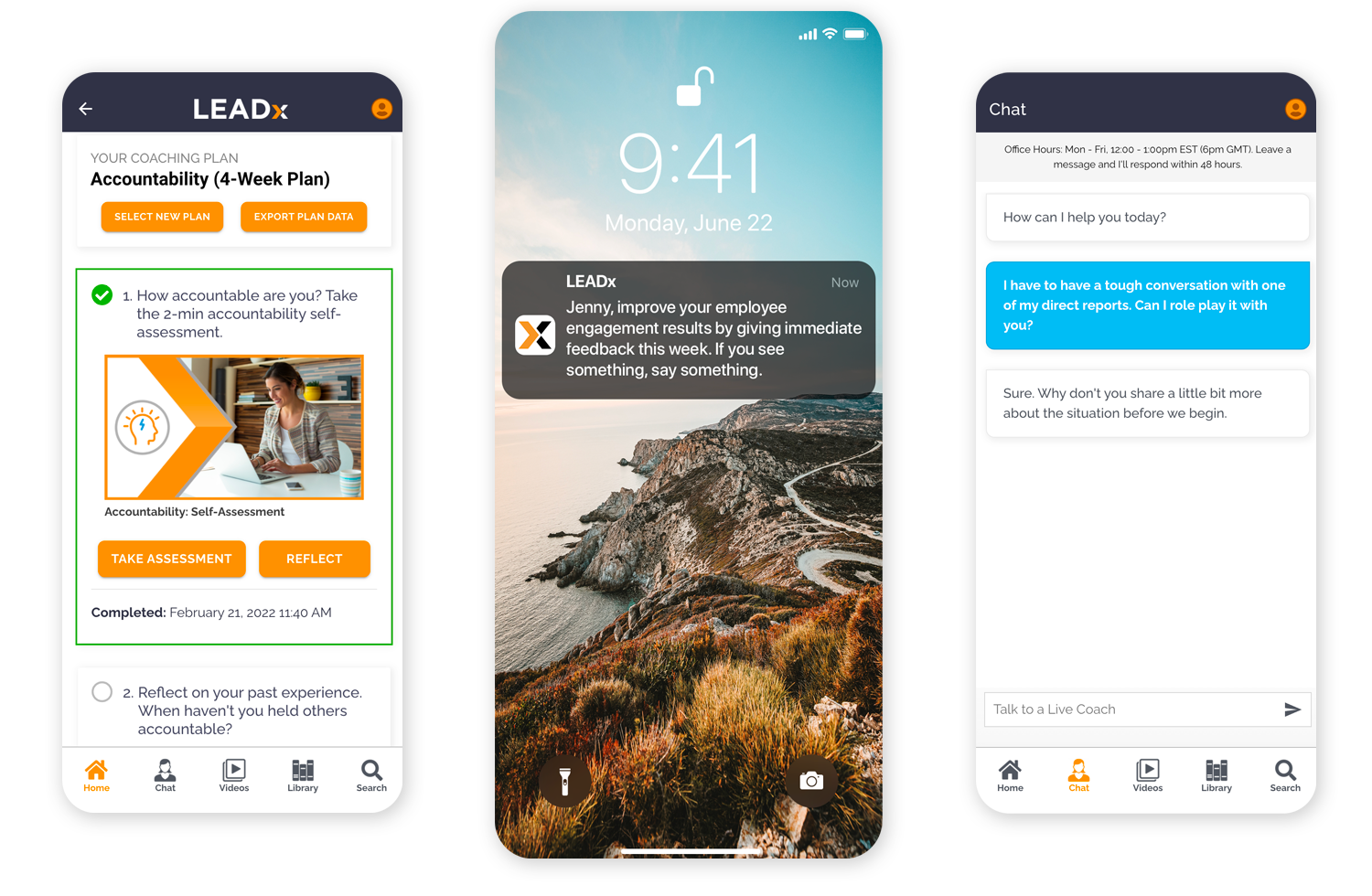
Executive Coaching: Definition, Benefits, and Cost
Executive coaching has risen to prominence over the last several years, no doubt accelerated by the unique challenges the pandemic brought to bear. There’s a growing awareness that leaders at the very top of growing organizations need outside support for their development. No leader, no matter the level, is without flaws, blind spots, and weaknesses. Executive coaches provide perspective, clarity, and accountability for a C-suite executive’s growth, with the goal of improving performance.
What is Executive Coaching?
When most people think of a coach, the image that likely comes to mind is in the context of sport. The role of a coach in athletics is to unlock the potential of each individual athlete; see how each player’s strengths work together to create a cohesive, competitive team; and lead and motivate the team to accomplish its goals.
Applied to business leadership, the “coach approach” is not all that different. In an executive coaching relationship, ongoing conversations are meant to help an executive be the best she can be in her role for the good of the team, the organization, and herself as a person. The International Coaching Federation (ICF) defines coaching as “a partnership with clients in a thought-provoking and creative process that inspires them to maximize their personal and professional potential.”
As such, executive coaches often blur the lines between personal and professional growth, because the weaknesses that show up in professional settings are often similar to those that occur in personal ones. This is why one of the main outcomes executive coaches hope to achieve is cultivating self-awareness. It’s difficult to break bad habits and disrupt negative patterns if you’re not even aware of them.
Most executive coaches don’t work for the same organization as their clients—this is by design. An executive coach who is an “outsider” can provide helpful perspectives on problem areas and decisions to be made that are tough to see from within.
What Does an Executive Coach Do?
Many leaders seek out executive coaches under the incorrect assumption that the coach will listen to all their problems and then tell them how to solve them. In reality, the best executive coaches rarely offer advice outright.
The hallmark of a true coach is in the questions they ask, rather than the answers they give. The best executive coaches help guide coachees on their leadership journeys; rather than offering turn-by-turn directions. Executive coaches are facilitators for introspection and exploration. They seek to help achieve goals, but let their coachees chart the course to get there.
As oft-cited 2019 Harvard Business Review article “The Leader as Coach” puts it, coaches “ask questions instead of providing answers, support [people] instead of judging them, and facilitate development instead of dictating what has to be done.”
The content of executive coaching sessions will vary based on the areas the executive wants to improve upon. If the leader seeks to improve communication with direct reports, executive coaching may take on the flavor of leadership coaching, for which the ultimate end goal is to improve as a leader. If unhealthy mindsets or habits are causing problems, executive coaching may look more like performance coaching, where the coach seeks to unlock the executive’s performance potential. And if the executive wants to overcome a personality issue or learn how to set better boundaries, a bit of life coaching may be introduced as well. In many cases, executive coaching is a blend of all three.
Benefits of Executive Coaching
It’s difficult to overstate the positive outcomes that can come from working with an executive coach. The Institute of Coaching, citing the International Coaching Federation, reports that more than 70% of people who receive coaching experience improved work performance, relationships, and communication skills. When executives experience a trusting relationship with a coach who is invested in their growth, many additional benefits can be expected, including:
- Self-awareness
- Emotional intelligence
- Improved listening skills
- Decreased stress
- Increased confidence in decision-making
- Improved leadership skills
Working with an executive coach can also help leaders learn basic coaching best practices they can then apply with their employees. It’s long been suspected that old “command-and-control” management models aren’t working anymore, so more and more organizations are adopting the manager-as-a-coach mentality. Not unlike the role of an executive coach, leaders with coaching skills focus on supporting employees and facilitating their growth, not telling them what to do.
Additional Reading:
What Executive Coaching is Not
Despite the growing popularity of executive coaches, a lot of people confuse executive coaching with other activities like managing, mentoring, training, and therapy.
Firstly, an executive coach is not a manager. One of the key benefits an external executive coach provides is an outsider’s perspective. It’s inadvisable to lean on a leader’s direct supervisor for formal executive coaching (even if coaching is a widely-adopted management practice in the organization) or lean on an executive coach as an outsourced manager.
An executive coach is also not a mentor. Mentors are typically further along in their career journeys than mentees, and, as such, offer advice and stories gleaned from their experience in a specific field. Most mentors aren’t coaches, and thus don’t have the necessary skills for a productive executive coaching relationship. Mentors are extremely important to the leadership journey, but cannot take the place of an executive coach.
Executive coaches also are not trainers. An executive coach’s primary role is to help their coachee grow in a highly personalized, relational way; not by teaching specific content or curriculum. Remember, the best executive coaches are quick to ask questions and slow to offer advice. As such, an executive coach is not to be viewed as a trainer or educator.
Finally, executive coaches are not therapists. Psychotherapists are mental health professionals who use a variety of modalities to help people overcome trauma, mental illness, and emotional problems. Most people would benefit from working with a therapist in some capacity, but executive coaching should not be confused with therapy. Executive coaches are not equipped to diagnose and treat mental illness, and therapy often focuses on the past, where executive coaching is more future-focused.
What’s Needed for a Productive Coaching Relationship
- Trust and Vulnerability – In order for executive coaches to help coachees make progress in growth areas, confidentiality must be established upfront. Taking a long, hard look in the mirror to identify flaws and weaknesses requires vulnerability, and that’s exactly what coaches help their coachees do. As such, a relationship of deep trust, where the leader feels comfortable letting her guard down, is necessary to progress toward goals.
- Commitment to the process – Perhaps it goes without saying, but a coaching relationship won’t produce positive outcomes if the leader isn’t “bought in.” It will take time for improvement to take place, so leaders need to be committed to their own growth in order to see results. That also means keeping coaching appointments, making time for “homework,” and showing up ready to “do the work.”
- Growth mindset – An executive coaching relationship won’t be productive if the leader doesn’t believe she has anything to learn or gets defensive when faced with shortcomings. Executive coaching is most fruitful when the leader is eager to grow, improve, and learn from past mistakes.
- Grit and resilience – The main goal of executive coaching is to create positive change in the leader. Change is always difficult, as is becoming aware of flaws and weaknesses you didn’t know were there. As such, it’s important for leaders to start a coaching relationship knowing that some emotional grit and resilience will be required—and that the difficulties they face will be well worth it in the end.
Executive Coaching Services
Executive coaching services come in many colors and flavors. With technologies like video conferencing being widely available, leaders are no longer bound to their geographic location when it comes to finding the right executive coach for their needs. Some executive coaches run their own coaching practices, others are employed by a larger practice that has multiple executive coaches on staff. Others still are part of a larger network within a third-party platform that matches up coachees to available coaches. Some may also offer services that are adjacent to executive coaching, like leadership training or consulting services.
Executive coaching sessions can range in length from 50-90 minutes and occur as frequently as the coachee’s schedule allows. Typical cadences include weekly, biweekly, or monthly sessions. The spectrum of cost for executive coaching is wide. The Society for Human Resource Management (SHRM) estimates the average rate for executive coaches is somewhere around $350 per hour, but can range from $200 and $3,000 an hour. It’s worth noting, though, that executive coaching can yield powerful, positive outcomes that radiate out to the entire organization—like better business decision-making and improved performance—so the potential return on investment is high. An International Coaching Federation study found that 86% of companies surveyed recouped their investment in coaching, and then some.
Executive coaching can be performed one-on-one or in a group setting. The key benefits of one-on-one executive coaching lie in having the coach’s undivided attention and the deep partnership that can flourish as a result. With group coaching, on the other hand, coachees enjoy the benefit of a psychologically safe environment where participants can talk, share, discover, and support each other.
Coaching + Nudges = Behavior Change
“Use nudges. Consider working with organizational psychologists to design nudges (encouraging reminders) that prompt learning. Design tests to find out which nudges are most effective.” – Dr. Serena Huang, Head of People Analytics at Paypal
Nudges have existed for a long time, and that’s because they work naturally with the human brain. “Do you want to supersize that?” “107 days without an incident,” and “Your appointment is scheduled for 8:30 am tomorrow. Confirm here” are all examples of how nudges are naturally incorporated into our daily lives. Nudges can help bring coaching to life daily, on leaders’ schedules, and in the natural flow of their work.
Free Download of our ebook Nudging Your Leaders







